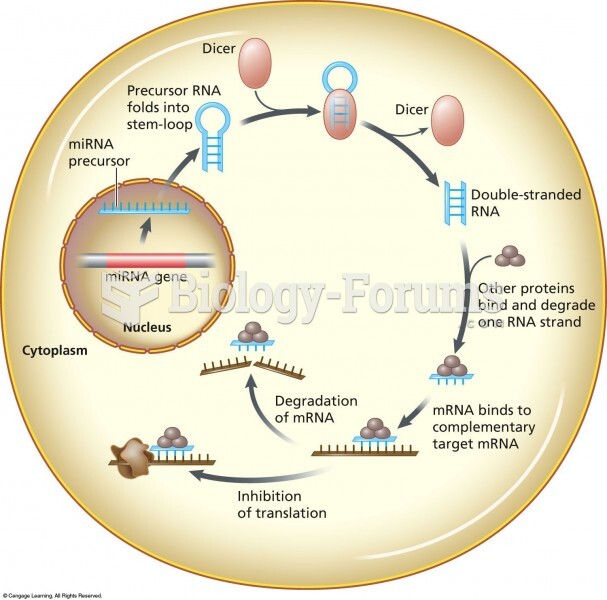|
|
|
More than 2,500 barbiturates have been synthesized. At the height of their popularity, about 50 were marketed for human use.
Since 1988, the CDC has reported a 99% reduction in bacterial meningitis caused by Haemophilus influenzae, due to the introduction of the vaccine against it.
Russia has the highest death rate from cardiovascular disease followed by the Ukraine, Romania, Hungary, and Poland.
Women are 50% to 75% more likely than men to experience an adverse drug reaction.
IgA antibodies protect body surfaces exposed to outside foreign substances. IgG antibodies are found in all body fluids. IgM antibodies are the first type of antibody made in response to an infection. IgE antibody levels are often high in people with allergies. IgD antibodies are found in tissues lining the abdomen and chest.
 A comparison between chromosomes found in a normal human cell and a cancer cell from the same person
A comparison between chromosomes found in a normal human cell and a cancer cell from the same person
 Instruct recipient on giving you feedback immediately if heat becomes too intense. Remind the person ...
Instruct recipient on giving you feedback immediately if heat becomes too intense. Remind the person ...
 Pelvis and knee rock. Hold the feet again for a moment, and move to the person’s right side. Place ...
Pelvis and knee rock. Hold the feet again for a moment, and move to the person’s right side. Place ...




